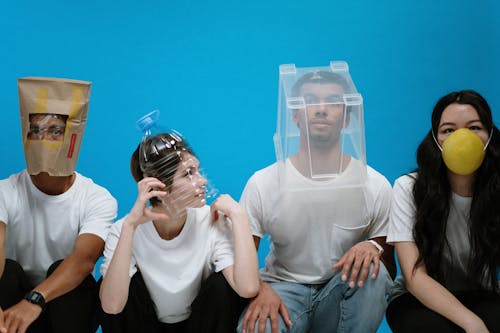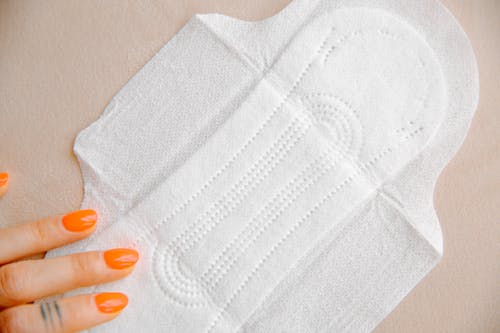
Air pollution can cause skin damage. Some examples of the impact of pollution on the skin include premature aging and skin irritation to skin cancer. The level of exposure and how long you are exposed to the pollution can have different effects on your skin.
The skin is the body's largest organ which has the main function of protecting the body from foreign objects, such as ultraviolet radiation, chemicals, and germs. You may think that your skin is only exposed to foreign objects and harmful substances when you are outdoors or in the work environment. Even so, exposure to hazardous substances can also appear when you are at home while carrying out your daily activities.
Pollution from the Outside Environment
The amount of smoke from motorized vehicles, cigarettes, or factories, makes the air contains various pollutants that cause air pollution. Usually, air pollution contains at least six kinds of pollutants, namely carbon monoxide, lead, nitrogen oxides, ozone, pollution particles or particulates, and sulfur oxides.
Air pollution has been shown to cause symptoms of respiratory disease and lung dysfunction, leading to strokes, asthma and premature death. Apart from having an impact on body health, pollution also has an impact on your skin. Pollution can lead to skin cancer, because the skin can absorb various pollutants in the air.
Not only that, polluted air can at least cause premature aging of the skin; aggravating skin diseases such as eczema, psoriasis, and acne; can damage DNA in skin cells; interfere with the skin's ability to produce collagen; can activate certain molecules that cause dark spots or skin pigmentation; and causes the skin to become dry. The environment around where you live also often affects the health and appearance of your skin.
Pollution Originating at Home
If you think air pollution only exists outdoors, then you are likely mistaken. Because air pollution can be present in your home. Indoor air pollution can be just as bad, or worse than it is outside. Pollution in your house at least comes from mold, pollen from plants, household products, pesticides, gases such as radon and carbon monoxide, as well as materials used in buildings such as asbestos and lead.
The following are some of the other dangerous things that may be in your home, including:
- The smell of furniture or building items that we usually refer to as "the smell of new stuff". It usually disappears within a few weeks, but the emissions it causes can pollute the home for years.
- Volatile organic compounds, including formaldehyde, which are derived from cleaning products and products made from wood and plastic.
- Ozone from printers and copiers.
- Asbestos in buildings or old buildings.
- The tiny lint of furniture that flies into the air every time you sweep.
- Exhaust fumes from the streets that enter the house.
- Poor ventilation resulting in insufficient fresh air in the house, or poor air filtration.
- Cigarette smoke (if someone in your family smokes).
How to Take Care of Skin from Pollution
Simple, yet important ways we can do to reduce the impact of pollution-induced skin damage.
- Diligently Cleaning Skin
Avoiding pollution is practically impossible, therefore, you should always try to minimize the impact that pollution has on your skin. Help the skin by always cleaning it. Wash your face daily with a mild soap on the skin. Shed dead skin cells so that the skin can form a new layer by scrubbing (make sure you don't use products that make the skin even drier), and always apply a moisturizer.
- Use Skincare to Clean Skin
By using good skincare or facial care products, your skin will be more awake to its elasticity and moisture. Use Cleanser, never forget to use it, and wash your face after using products that already have permission from the health department.
- Do not smoke
Smoking causes wrinkles, the appearance of wrinkles on the face, sagging eyelids, uneven skin coloring, rough and dry skin. Avoid cigarette smoke as much as possible because cigarette smoke can damage the structure of your skin.
- Use sunscreen
The combination of air pollution and ultraviolet (UV) light can multiply the harmful effects of UV radiation on the skin. Therefore, use sunscreen with an SPF of at least 15 or more. Your skin needs UV protection to help reduce your risk of skin cancer and other signs of premature aging. You can choose a sunscreen that contains zinc or titanium dioxide, which can block the absorption of ultraviolet rays on the skin.
- Antioxidant intake
In order to prevent premature aging due to pollution, you are also advised to eat foods that contain antioxidants. Because antioxidants are believed to protect the body from damage caused by harmful molecules called free radicals. The best sources of antioxidants are fruits and vegetables. Some sources of antioxidants include red wine, tea, kiwi, broccoli, tomatoes, mangoes, oranges, carrots, nuts, spinach, asparagus, blueberries, and green vegetables.
Pollution is difficult to avoid, both in open and closed spaces. You will never be completely protected from pollution. Your skin is the first organ to be exposed to these harmful substances. Therefore, always try to keep the environment where you live and work clean, do skin care, and don't forget to eat healthy foods that are rich in antioxidants. If air pollution is bad for your health and your skin, immediately consult a doctor to get the right treatment.
Use Anti Aging Cream (For 30 years and above)
Anti-aging cream is offered to prevent premature aging, reduce blemishes / dark spots on the face, or remove wrinkles under the eyes. Lately, many products contain anti-aging ingredients, of course these products are very popular with women.
The question is, are these products effective in preventing premature aging? Really! Anti-aging cream is said to help women prevent premature aging. The results of research by experts developed in a product are indeed quite effective, if the cream is applied to a night cream. Wow, even though there are day cream products (used in the morning), there are also those that promise anti-aging right? Facial dermatologists say that the skin regenerates three times faster at night than during the day. For this reason, most quality anti-aging products offer anti-aging benefits in night creams.
The morning cream, on the other hand, offers more moisturizing benefits. When you are under 30 years old, do you need to use anti-aging creams? Need! Night cream with anti-aging function is to slow down the aging of the skin, so that even if you are in your 20s, you are allowed to use the cream so that the skin is fresher and younger for longer. Don't forget to use a brand that has been tested for quality



No comments: